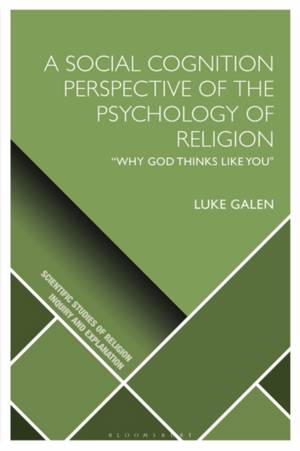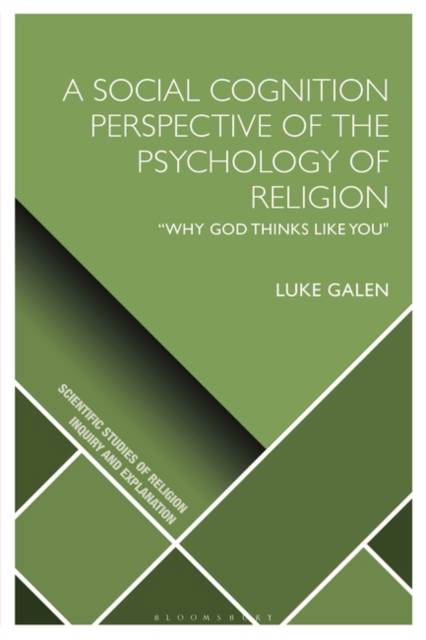
Je cadeautjes zeker op tijd in huis hebben voor de feestdagen? Kom langs in onze winkels en vind het perfecte geschenk!
- Afhalen na 1 uur in een winkel met voorraad
- Gratis thuislevering in België vanaf € 30
- Ruim aanbod met 7 miljoen producten
Je cadeautjes zeker op tijd in huis hebben voor de feestdagen? Kom langs in onze winkels en vind het perfecte geschenk!
- Afhalen na 1 uur in een winkel met voorraad
- Gratis thuislevering in België vanaf € 30
- Ruim aanbod met 7 miljoen producten
Zoeken
€ 195,45
+ 390 punten
Omschrijving
An exploration of how psychological mechanisms produce intuitions, beliefs, behaviors, and experiences that are misattributed as being unique outcomes of religious or spiritual influences. Written from a social psychology perspective, this book proposes that religious and spiritual content represent one possible interpretation of the output of processes that also produce and govern nonreligious content.
In looking at why people believe in God, and why belief in God is often linked with a range of positive outcomes such as prosociality, morality, health, and happiness, the author uses a critical lens that challenges past theories of religion's functions and adds new perspectives into a discipline that is often limited by an exclusive focus on evolutionary theory.
This book features several cross-cutting themes-including "dual process" theory and an exploration of how various social cognition mechanisms and biases can channel or shape religious content-and provides a continuous through-line linking the underlying building blocks of thought, as studied in the cognitive sciences of religion (CSR) to specific religious and spiritual concepts using a social cognition lens.
In looking at why people believe in God, and why belief in God is often linked with a range of positive outcomes such as prosociality, morality, health, and happiness, the author uses a critical lens that challenges past theories of religion's functions and adds new perspectives into a discipline that is often limited by an exclusive focus on evolutionary theory.
This book features several cross-cutting themes-including "dual process" theory and an exploration of how various social cognition mechanisms and biases can channel or shape religious content-and provides a continuous through-line linking the underlying building blocks of thought, as studied in the cognitive sciences of religion (CSR) to specific religious and spiritual concepts using a social cognition lens.
Specificaties
Betrokkenen
- Auteur(s):
- Uitgeverij:
Inhoud
- Aantal bladzijden:
- 272
- Taal:
- Engels
- Reeks:
Eigenschappen
- Productcode (EAN):
- 9781350293908
- Verschijningsdatum:
- 13/07/2023
- Uitvoering:
- Hardcover
- Formaat:
- Genaaid
- Afmetingen:
- 156 mm x 234 mm
- Gewicht:
- 612 g

Alleen bij Standaard Boekhandel
+ 390 punten op je klantenkaart van Standaard Boekhandel
Beoordelingen
We publiceren alleen reviews die voldoen aan de voorwaarden voor reviews. Bekijk onze voorwaarden voor reviews.









